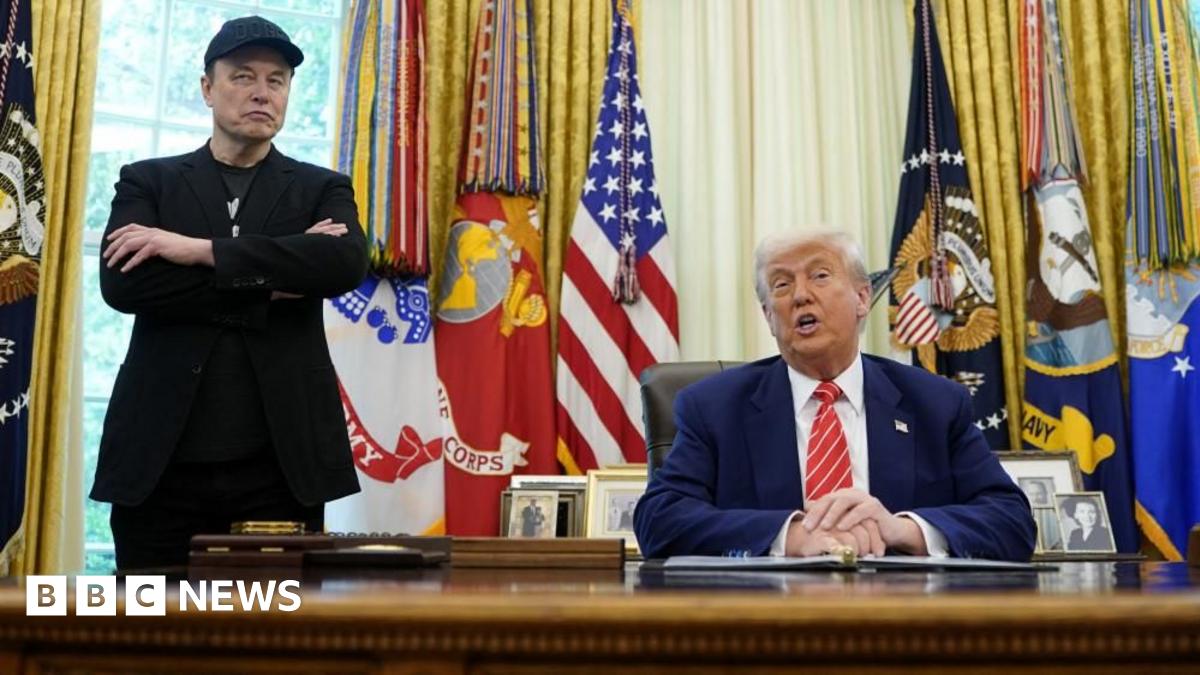Trump Claims Musk 'Isn't Really Leaving' Despite White House Contract Expiration - A Blow to Efficiency Efforts?

Former President Donald Trump has publicly stated that Elon Musk, the renowned tech billionaire, “isn’t really leaving” despite the expiration of his contract with the White House. Musk’s tenure focused on a mission to dramatically streamline the federal government and significantly reduce spending through his role as an advisor on Government Efficiency. However, the conclusion of this partnership raises questions about the future of these ambitious initiatives and their potential impact on federal employment.
Musk's Brief but Impactful Role
Elon Musk’s involvement with the Trump administration, while relatively short-lived, generated considerable attention. Appointed to advise on government efficiency, Musk was tasked with identifying areas of waste and proposing strategies for cost reduction. His approach was characterized by a focus on leveraging technology and data-driven insights to improve government operations. He quickly became a vocal advocate for automation and digitization, suggesting that these could lead to substantial savings.
The Cuts and the Controversy
The implementation of Musk’s recommendations resulted in the elimination of thousands of federal jobs. While proponents argued that these cuts were necessary to improve fiscal responsibility and reduce the national debt, critics raised concerns about the potential impact on public services and the livelihoods of affected employees. The debate highlighted the complex challenges of balancing budgetary constraints with the need to maintain essential government functions.
Trump's Assertion and its Implications
Trump’s recent declaration that Musk “isn’t really leaving” suggests that he believes the tech mogul’s influence will continue to be felt despite the formal end of the contract. This statement could be interpreted as a sign of ongoing support for Musk’s agenda or an indication that the administration intends to pursue similar efficiency reforms in the future. However, without Musk's direct involvement, the momentum behind these efforts may be difficult to sustain.
Looking Ahead: The Future of Government Efficiency
The expiration of Musk’s contract marks a significant turning point in the ongoing debate over government efficiency. The long-term impact of his work remains to be seen, but it has undoubtedly brought renewed attention to the need for fiscal responsibility and innovative approaches to public administration. The question now is whether the initiatives he championed will be carried forward by others or if they will fade away with his departure. Experts are divided, with some arguing that Musk’s ideas were too disruptive to be fully implemented, while others believe that his contributions will continue to inspire future reforms.
The situation highlights the challenges of bringing outside expertise into government and the complexities of implementing large-scale change within a bureaucratic system. Whether Musk’s short stint in the White House ultimately proves to be a success or a missed opportunity, it has undoubtedly left its mark on the conversation surrounding government efficiency and the role of technology in public service. The debate over how best to modernize the federal government and ensure its long-term sustainability is far from over.






